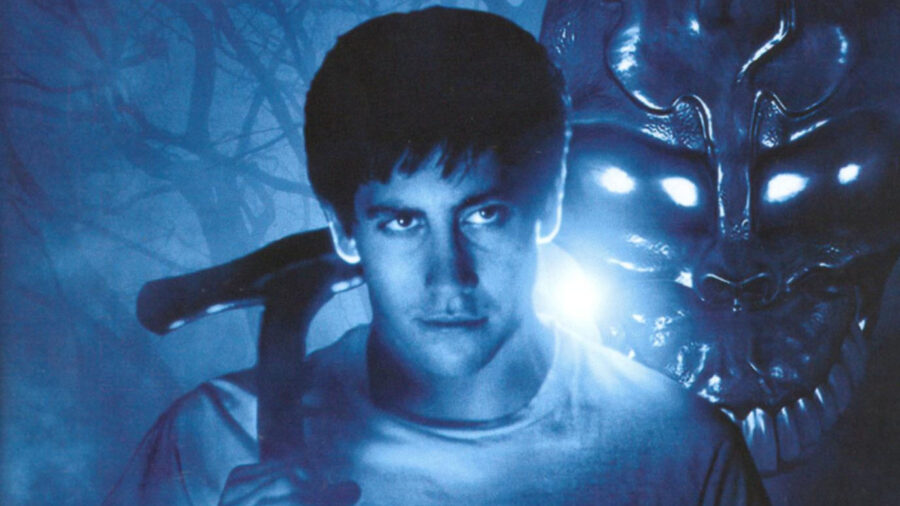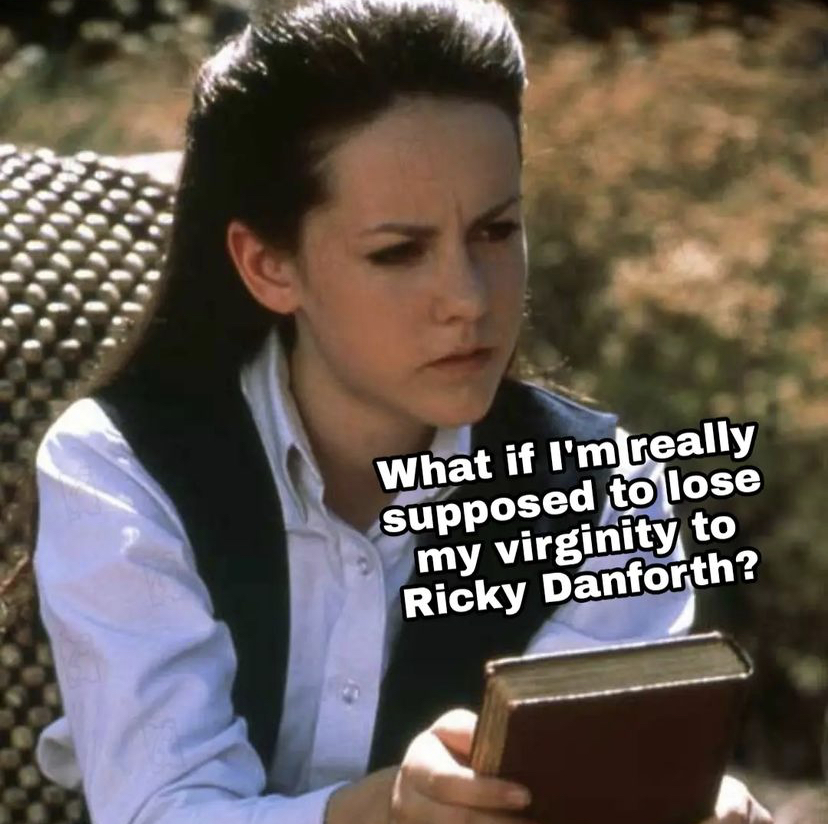DONNIE DARKO (2001)  Donnie Darko turned 20 years old this year. It continues to resonate with audiences after an entire generation. The niche Richard Kelly film has secured itself as a cult classic of the Y2K era. Considering the setting of the movie, it also falls weirdly into the Halloween genre; lest we forget Donnie Darko's climax, and the time traveling ghost in a bunny suit haunting actor Jake Gyllenmhal's schizophrenic visions throughout the fateful October of 1988. Unfortunately, despite a promising Sundance Films premiere in January of 2001, Donnie Darko's release was cursed by the 9/11 attacks. The movie's promotional trailer featured a jet plane engine falling out of the sky, and at that time nobody even wanted to put it on TV in the weeks leading up to October 25th, the day that the indie film went big time. However, even though the movie made a disastrous thud at the box office, it captured many critics with its original time bending plot. It picked up momentum as a conversational piece among enthusiasts of the avant garde, indie film buffs, and fans of the movie's retro themed soundtrack. By the time I first saw it in 2003, the movie was already buzzing among 18-year-olds in the middle class neighborhoods of Massachusetts where I lived, back when we still had a middle class in the early 2000s. It went on to become the edgy blockbuster that never was for schizoid youths of the 21st century, and remained an enduring part of our weird lives as Millennials coming of age in a real world doomsday plot. Like the horrible timeline we ended up in as no fault of our own, Donnie Darko said something about us all. I liked that they ended the movie by killing off their teenage protagonists and ending the love story to reset the chronological error of Donnie Darko's reality. It really was provocative for the early 2000s. It was also completely unexpected the first time that I saw it. I never would have guessed that the talking bunny was James Duval with a bullet in his head. It also draws attention to schizophrenics who are able to somehow piece their thoughts into visions of time travel and ghosts. As someone who pretty much lives in a 24/7 cycle of hallucinations and eerie voices only made tolerable for the few times that they actually have anything useful to show me, Donnie Darko's mental illness was relatable to me. Darko's bipolar schizo hysteria is covered extensively in the film. It is frequently discussed by the movie's characters. Darko attends therapy, takes medication, and yet still strives to fit in as a confident social character with his group of friends. Darko gets with the girl, Gretchen Ross, played by Jena Malone. He is the bully when picking on Cheritan Chan (the 'chut up' girl), and the bullied when Seth Devlin threatens Darko at knife point in the bathroom of their school. All of these things make for a well rounded character. One could not define Darko with a single word, not even with a single sentence. He is a thought provoking character who challenged the conception of how people see mentally ill males.  Donnie Darko also has interesting supporting characters with their own neat subplots. Darko's sister, played by Jake's real life sister Maggie, is a blooming rebellious young liberal daughter rising up against her conservative father. Drew Barrymore's character, the English teacher Karen Pomeroy, desperately struggles to shape her students spirited thoughtful minds through literature. Her boyfriend in the film, the science teacher Prof. Kenneth Monnitof has the distinction of being the only real respectable leader that Darko has in a world full of frauds and sniveling bureaucrats at Middlesex High School. They have a brief discussion about the possibilities of time travel which in my estimation is one of the best on-film conversations about the subject. Their chat abruptly ends when Prof. Monnitof explains to Donnie that going into too much detail about the spiritual implications of preassigned fate could cost him his job, but not without Monnitof encouraging Darko to explore his curiosity through the sage works of Roberta Sparrow's Philosophy of Time Travel. These are challenged individuals with their own motives, and despite being brilliant they do not get their own way. Pomeroy is terminated late in the movie for teaching the children politically incorrect material. Patrick Swayze's character, Jim Cunningham is a wealthy motivational guru who teaches at Middlesex. Cunningham has a dark terrible secret which is only discovered through the mischievous arson of Donnie Darko during one of his schizophrenic fits. Donnie Darko doesn't get to be the hero that we want him to be, yet this act is symbolically the one truly heroic act that we get to see in the film. The scene becomes even more twisted when one realizes that this serendipitous act is never supposed to actually happen. Once Donnie's death resets the timeline, Cunningham's pedophilic obsession continues without intervention.  All of the movie's sub plots are altered by the climatic main plot's time shifting twist. Every scene in the movie goes in a completely different direction after the plane engine lands on Darko's head. We never get to know what is really meant to happen. Does Drew Barrymore's character even really get fired? I can't think of any other movie like that. Even the implied sex scene when Donnie loses his virginity must be corrected. Donnie dies a virgin. Fate is strange and wicked. As a consequence of Donnie being crushed by a jet motor falling backwards through time, Gretchen gets to live, but the cost is terrible and probably no less better than watching Gretchen get run over by a drunk driver on Halloween. ------------------------------------------------------ | | |